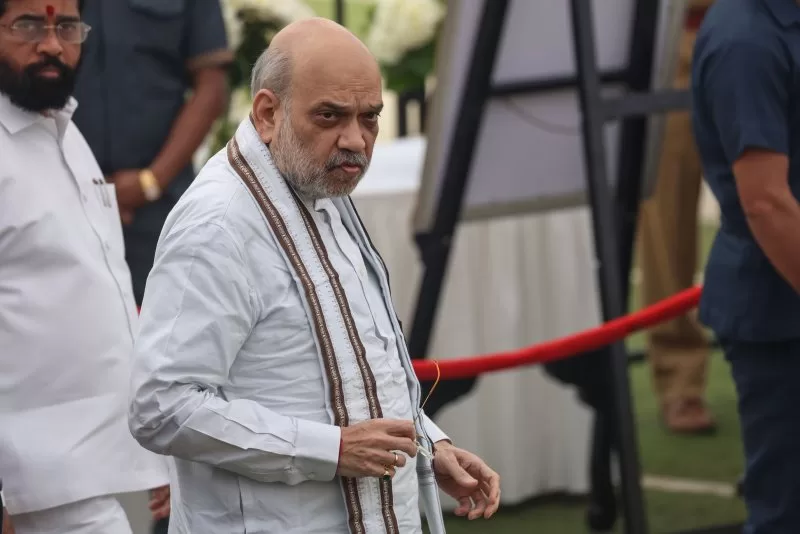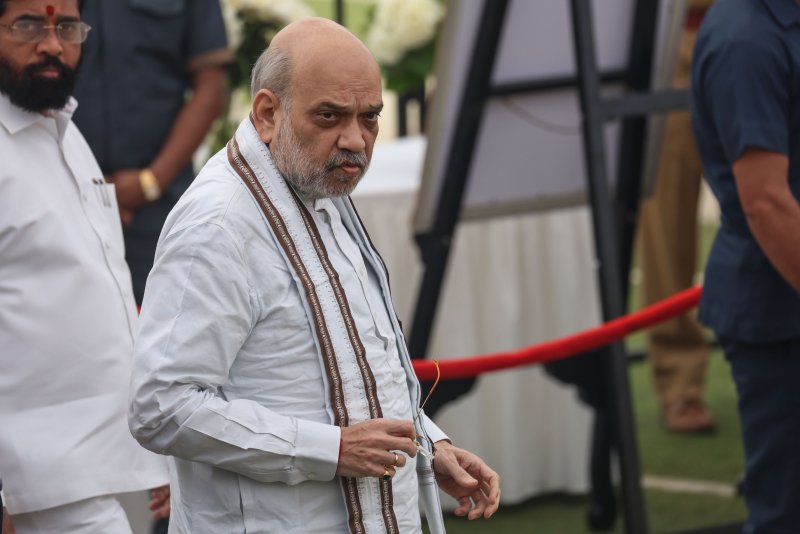Canada has accused Amit Shah, minister of Home Affairs of India, of being involved in a violent plot targeting Sikh separatists on Canadian soil. Photo by Divyakant Solanki/EPA-EFE
Oct. 30 (UPI) — Ottawa has accused Indian Home Minister Amit Shah of being involved in plots targeting Sikh separatists within Canada, a development that is expected to further fray relations between the two countries.
Canada has been investigating India in connection to a series of threats and assassination attempts on Indo-Canadians on Canadian soil but has been tight-lipped about which senior Indian government officials are involved, as well as the evidence linking the violence to New Delhi, over fears of interfering in the ongoing investigations.
Earlier this month, The Washington Post was the first to connect Shah — a close associate of Indian Prime Minister Narendra Modi — to the plots, publishing an article that claimed he is the senior Indian official who authorized intelligence gathering and attacks on Sikh separatists in Canada. The article sources Canadian officials.
On Tuesday, Deputy Foreign Affairs Minister David Morrison testified during a Canadian parliamentary national security committee hearing that he was who confirmed Shah to The Post.
“The journalists called me and asked if it was that person. I confirmed it was that person,” he said under questioning by Member of Parliament Raquel Dancho. “The journalist has various sources and he asked me if that was one of the people and I confirmed that it was.”
The announcement is the first time that Canada has formally named a high-ranking Indian official involved in the attacks on Indo-Canadians.
Sikhs For Justice — an international pro-Khalistan advocacy group that previously named Shah as having directed the assassination of Hardeep Singh Nijjar in September 2023 — followed the meeting Tuesday by calling for the Indian minister to be prosecuted.
“The Modi-Shah regime has declared war on dissent, and the international community must take a stand against India’s violent transnational repression,” Gurpatwant Singh Pannun, general counsel to Sikhs For Justice, said in a statement.
Canadian Prime Minister Justin Trudeau first publicly accused India of being involved in targeting Indo-Canadians in September of 2023 when he said they had “credible allegations of a potential link” between New Delhi and those who gunned Nijjar down on June 18.
Canada has said it has repeatedly approached India about the issue. India has denied all the allegations and has rebutted that Ottawa has failed to produce any evidence.
Meanwhile, Ottawa states the threats against Indo-Canadians has persisted.
On Oct. 14, the same day The Post article was published, the Royal Canadian Mounted Police made an extremely rare public warning to Indo-Canadians, disclosing that there have been “well over a dozen credible and imminent threats to life” against members of the Khalistan movement emanating from India.
During Tuesday’s testimony, the federal officials explained Canada has repeatedly attempted to discuss the matter with India, seeking it to accept responsibility and end its alleged crimes, but have been rebuffed.
Nathalie Drouin, Trudeau’s national security and intelligence advisor, told the hearing that one meeting between the RCMP and Indian law enforcement, scheduled to occur in India, was blocked by an “administrative technicality.” Then the RCMP traveled to Washington, D.C., for a scheduled meeting on Oct. 10, which Indian representatives failed to show up for.
On Oct. 12, several Canadian officials traveled to Singapore to meet with the Indian national security advisor, presenting him with evidence that linked his government to violent criminal activity. Drouin said they provided him with three options to achieve public safety and accountability.
The Indian official “refused to acknowledge any links and denied everything we presented,” she said, adding both sides agreed to reconvene to further discuss the matter on Oct. 14, Canadian Thanksgiving.
“Instead, the government of india chose to not respect our agreement and go public the next day, Sunday, Oct. 13, and used again their false narrative that Canada has not shown any evidence,” she said.
“By going public the government of India clearly signaled that they were not going to be accountable or take the necessary actions we needed to ensure public safety.”
This prompted Canada to expel the Indian diplomats, led the the RCMP to release its public statement and prompted Drouin, Morrison and others to speak with The Post on background, providing non-classified information in an effort to counter India’s claims that Ottawa did not have evidence.
Drouin explained going to The Post was a “strategic decision” to set the record straight and to have their side of the story be heard internationally.
She and Morrison said they did not provide Shah’s name to The Post, with Morrison suggesting that the reporter had called him separately for confirmation.
According to the officials who testified during the hearing, India’s modus operandi is to collect information on Canada-based individuals, which is then shared with senior government officials who direct a criminal organization to conduct the assassinations and other violent crimes.
RCMP Commissioner Mike Duheme said diplomats and officers from the Indian consulates in Canada were involved.

